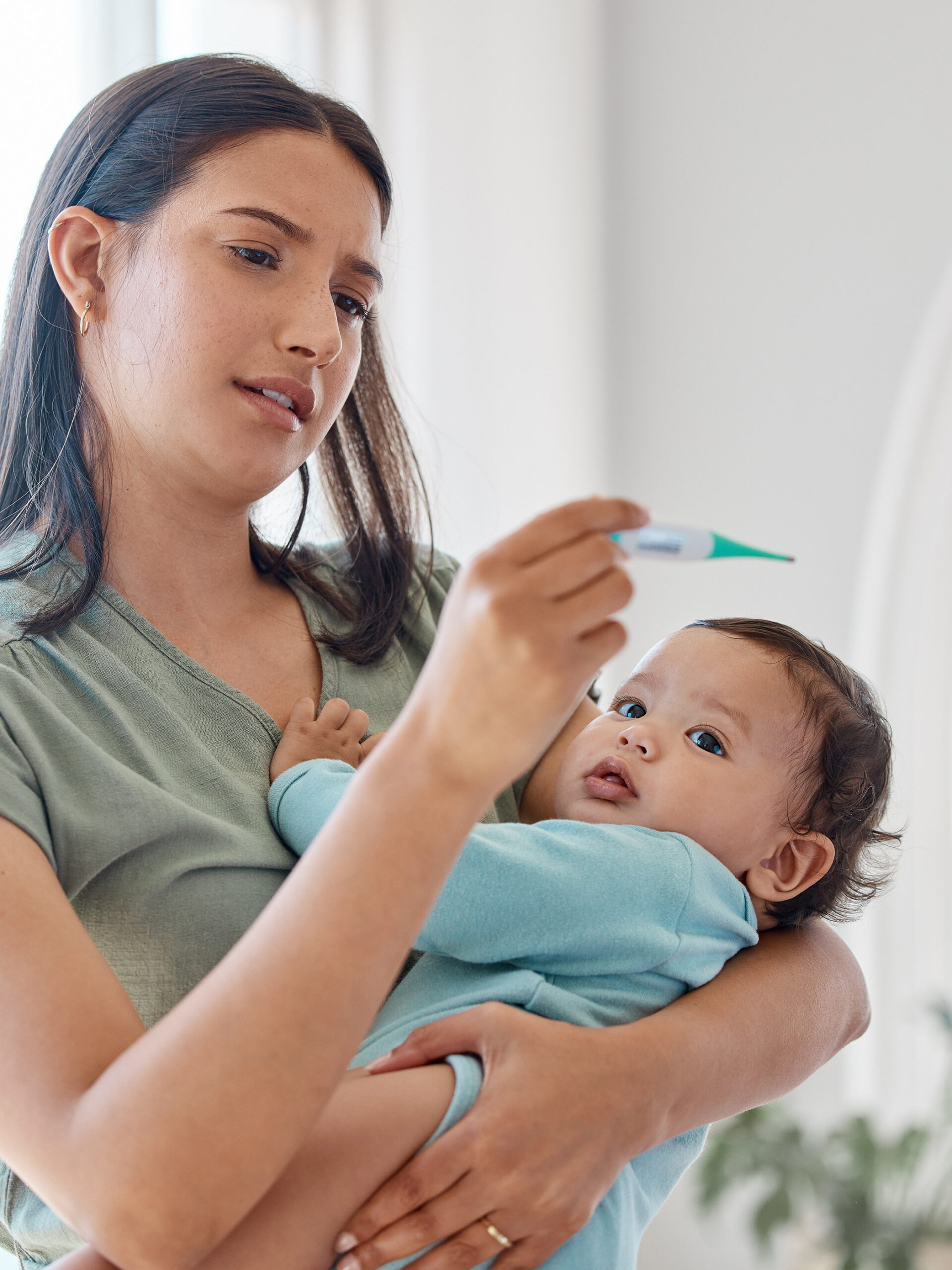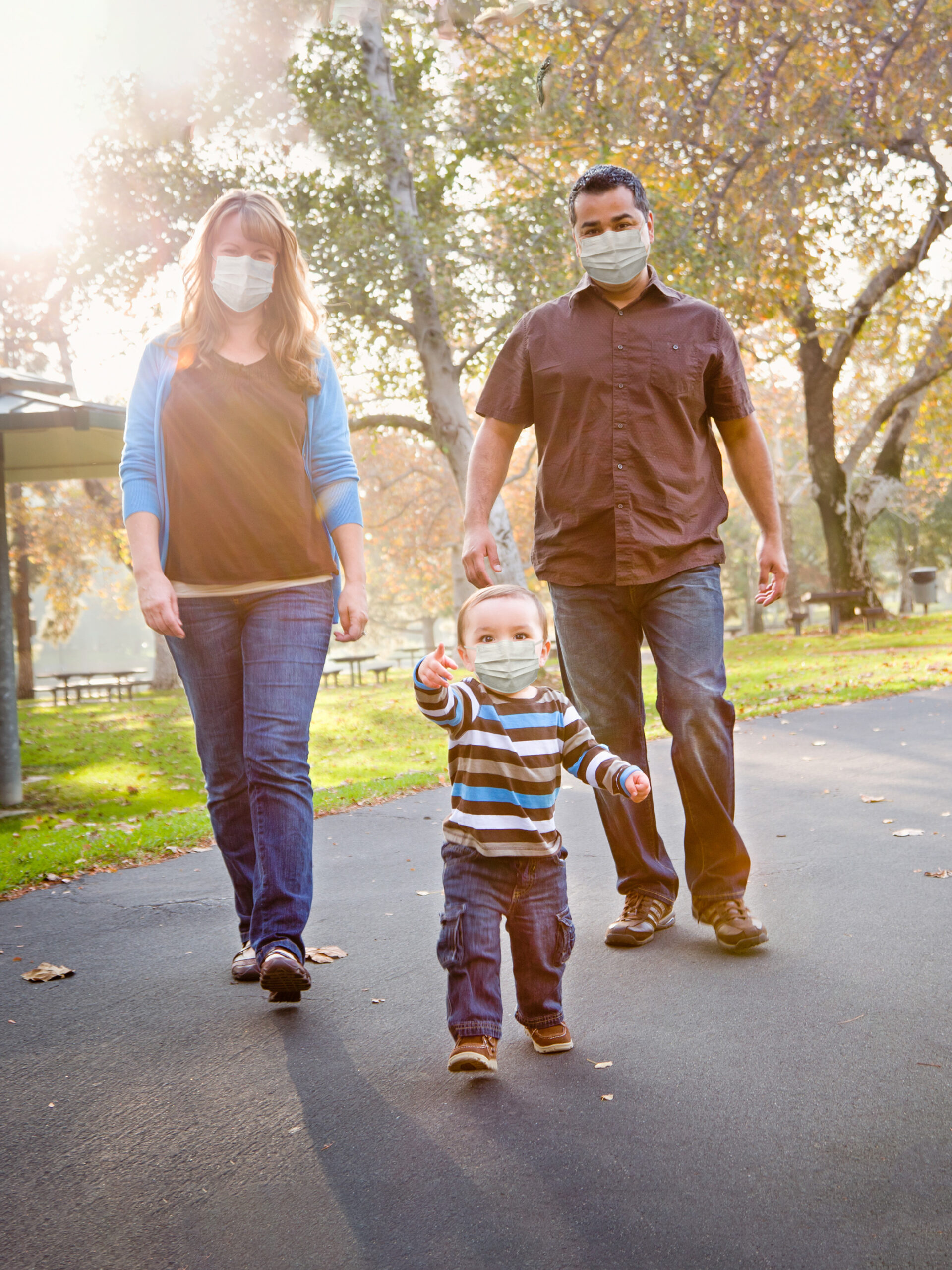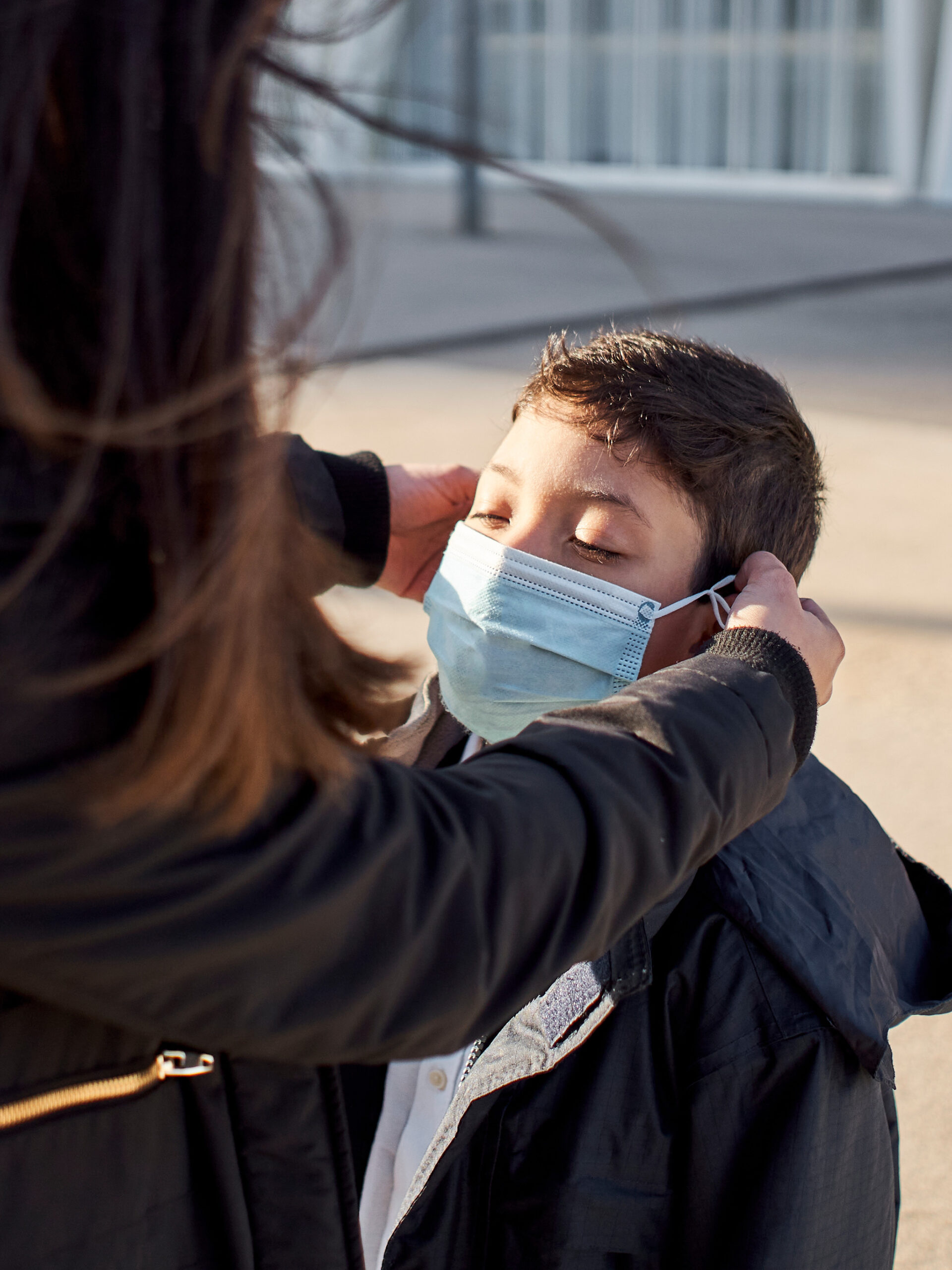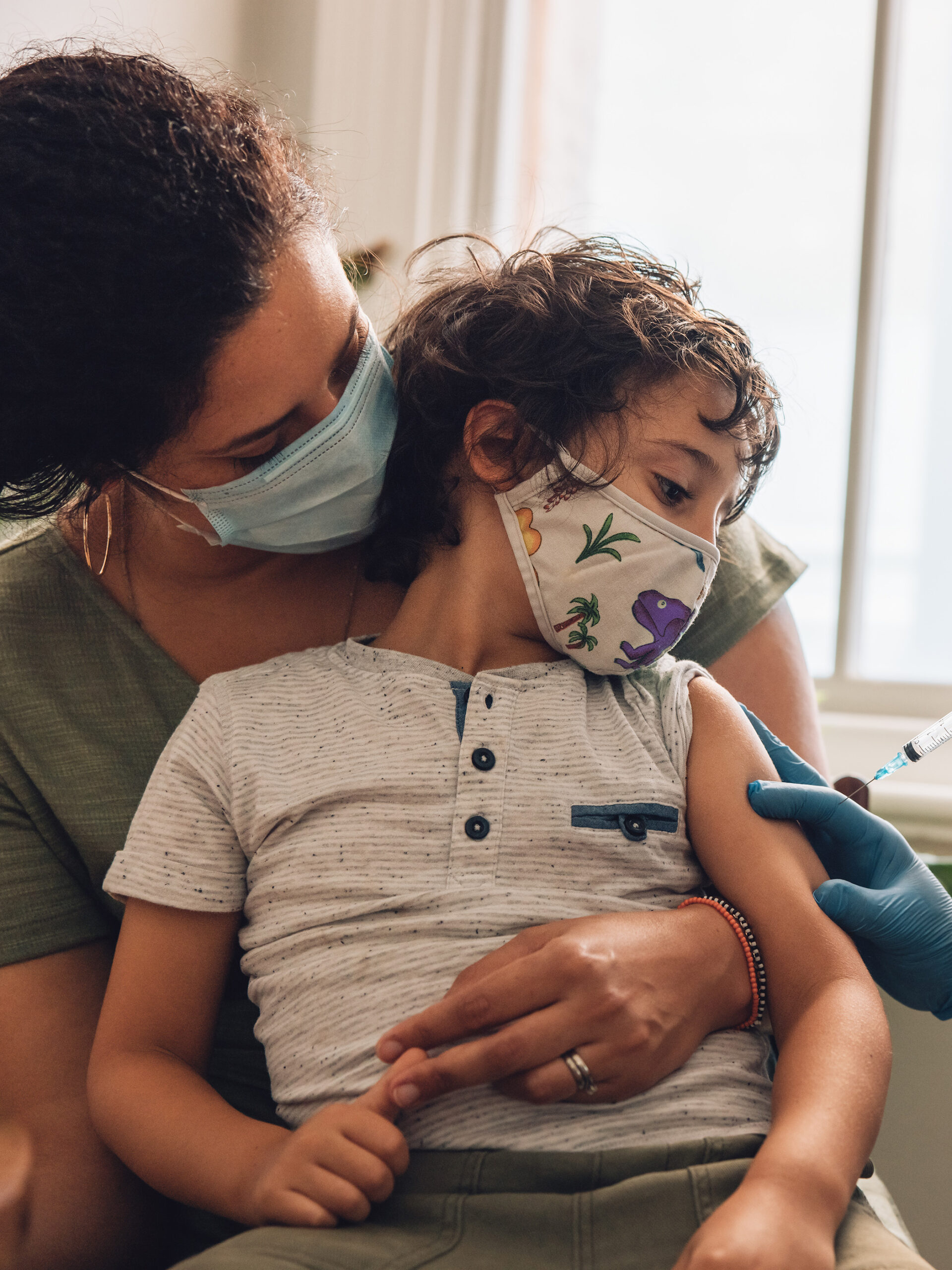COVID-19 Vaccines for Children and Teens
As a parent, you are the ultimate protector of your child, and you want to do everything you can to keep them safe. Medical experts agree that the COVID-19 vaccine is safe and effective for children and teens, and is the best way to protect them from COVID-19. We understand you may have questions about the vaccine and have created this guide to help address them.
Pfizer-BioNTech vaccine
Children 6 MONTHS – 4 YEARS
- Authorized for emergency use
Children ages 5-11
- Authorized for emergency use
- Eligible for a booster 2 months after primary series or last booster
Teens ages 12-15
- Authorized for emergency use
- Eligible for a booster 2 months after primary series or last booster
Teens ages 16+
- Full authorization
- Eligible for a booster 2 months after primary series or last booster
Moderna vaccine
Children 6 MONTHS – 5 YEARS
- Authorized for emergency use
- Eligible for booster 2 months after primary series
Children ages 6-11
- Authorized for emergency use
- Eligible for a booster 2 months after primary series or last booster
Teens ages 12-17
- Authorized for emergency use
- Eligible for a booster 2 months after primary series or last booster
Teens ages 18+
- Full authorization
- Eligible for a booster 2 months after primary series or last booster
J&J Janssen vaccine
people under 18
- Not authorized
People ages 18+
- Authorized for emergency use
- Eligible for a booster 2 months after primary series or last booster

Schedule a COVID-19 vaccine appointment for your child
To find CHOC’s community clinic on MyTurn, enter zip code 92868
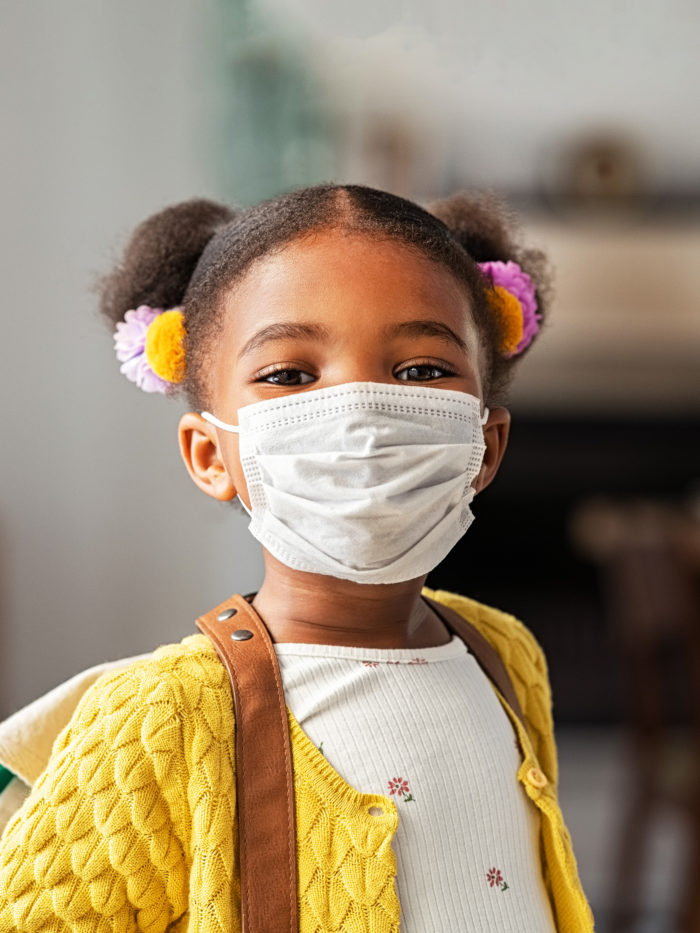
COVID-19 Vaccine FAQs
The Pfizer and Moderna vaccines have proven to be safe and effective for children and teens age 6 months and older.
At this time, the Pfizer vaccine is authorized for emergency use in children ages 6 months-4 years, 5-11 years, teens ages 12-15 years and people ages 16 and older to prevent COVID-19. The Pfizer vaccine for children 5 years and older are administered in two doses three weeks apart, injected into the arm muscle. The Pfizer vaccine for children under 5 are administered in three doses.
Studies show that vaccine recipients achieve immunity about two weeks after receiving the vaccine’s final dose. Scientists are still learning about how long that immunity will last.
The Pfizer vaccine, as well as the Moderna vaccine, is an mRNA vaccine. When the vaccine is injected, mRNA – a strip of genetic material – enters a body’s cell and prompts the cell to build copies of spike proteins. These spike proteins are the bumps that protrude from the surface of coronavirus particles. The body’s immune system then learns to spot these spike proteins and produces antibodies that block the virus from entering healthy cells in the future.
According to Pfizer’s clinical trial data, the company has determined that kids ages 5-11 years should receive a 10-microgram dose size and kids under 5 should receive a 3-microgram dose. The Moderna vaccine for children 5 years and under will contain 25-microgram doses. This is one-fourth of the dose that adults receive.
With the smaller dose sizes, children have demonstrated the same amount of robust immunity to COVID-19 as adolescents, teens and adults.
Are there any teens or children who shouldn’t get the vaccine?
There is no category of children or teenagers who shouldn’t get the vaccine unless they have a known allergy to one of the vaccine’s components. Because it isn’t a live vaccine – a vaccine that uses a weakened form of a germ to prompt an immune response – people with weakened immune systems, either from illness or medication, may still receive the vaccine.
There have been reports of allergic reactions to the vaccine, but these occurrences are very rare. Vaccine recipients are monitored for 15 minutes after receiving the injection in case of an allergic reaction, and anyone with a history of severe allergic reactions to foods or medications (who carry an epinephrine auto-injector) is monitored for 30 minutes. Children and teens with other types of allergies beyond any vaccine component can feel safe receiving the vaccine.
Are COVID-19 vaccines free?
Yes. COVID-19 vaccines are free and available for everyone at local pharmacies, primary care practices, and vaccine clinics. You may need to schedule an appointment to receive the vaccine.
Where can my child receive the COVID-19 vaccine?
Visit myturn.gov to make an appointment for your child to receive the COVID-19 vaccine.

More vaccine FAQs
Are the vaccine vials for children ages 6 months to 11 years the same as for older children and adults?
No. The vials of the Pfizer vaccine for children under 5 years will contain 3 microgram doses, and will be given in a three-dose series (the first two doses three weeks apart and the third dose at least two months after the second). The vials for children ages 5 to 11 years contain 10 microgram doses, and the vials for older children, teens and adults contain 30 microgram doses. This means that pharmacies and doctors’ offices will have separate stocks for these populations. They won’t, for example, be able to draw a smaller dosage amount from an adult vial to give to a young child. They will also need to use smaller needles to administer the vaccine to younger children. The vials for kids over 12 years will contain the same dose size aa adults.
The vials for children 5 years and under will contain 25-microgram doses and will be given in a two-dose series, a month apart. This is one-fourth of the dose that adults receive. Vials of the Moderna vaccine for children ages 6 to 11 years will contain 50 microgram doses, one-half of the dose used for adults. The vials for kids 12 to 17 years will hold 100 microgram doses, which is the same as adults.
What are the COVID-19 vaccine side effects for kids and teens?
For children and teens, the most commonly reported side effects include:
- Pain where the shot was given
- Fatigue
- Headache
- Chills
- Muscle pain
- Fever
- Joint pain
Any side effects should be relatively short-lived and ease within 24 hours. This is a sign that their immune system is mounting a response against the virus.
Will the COVID-19 vaccine protect kids and teens from COVID-19 variants?
Yes. Although experts are still trying to fully understand the nature of Delta, Omicron and other variants, they have proven to be highly infectious and transmissible. However, COVID-19 vaccines have shown to be highly effective at preventing severe illness, hospitalizations and death from COVID-19 and its variants.
There are some cases in which fully vaccinated people are becoming infected with COVID-19 (called a breakthrough infection), but in most cases, the vaccine should reduce the severity of illness. The recent emergence of new variants further emphasizes the importance of vaccinations, boosters, and prevention efforts needed to protect against COVID-19. People ages 5 years and older are eligible for the COVID-19 vaccine. All who are eligible should receive the vaccine to mitigate community spread and further mutations.
Learn more about the delta and omicron variants from CHOC experts.
My child already had COVID-19. Should they have the vaccine?
Yes. We don’t know how long the immunity lasts from natural illness, and the vaccine is made to create a longer-lasting immune response.
What if my child has received convalescent plasma treatments?
Your child or teen should wait 90 days to get the vaccine after receiving convalescent plasma or monoclonal antibody treatments. Your child’s pediatrician can help you determine when it’s appropriate to get the vaccine.
Do I need to accompany my child to the vaccination?
Yes. Anyone under 18 must have a parent or legal guardian present to receive the vaccine.
What should we bring to my child’s COVID-19 vaccination appointment?
Please bring a form of documentation with your child’s name and birthdate on it. The name should match the name on your appointment confirmation.
You do not need a government-issued ID to receive a vaccine. Examples of acceptable documentation include the following: student ID, baptismal certificate, library card, a REAL ID, state driver license or identification card, passport, matricula consular, among others.
What should my child expect at the COVID-19 vaccination appointment?
After checking in and taking care of the paperwork, you and your child will be asked some questions about their health. The shot will be administered into the arm. After receiving the shot, the child will be monitored for 15 minutes to ensure no adverse reactions. They will also receive a card indicating when they received the vaccine and information about the vaccine.
What should I do with their vaccination card?
Take a picture of it just in case and store it in a safe place. There is no need to laminate it.
Do we really need to come back for a second COVID-19 vaccine?
Yes. Clinical trials that led to the Pfizer and Moderna vaccine’s licensing incorporated two doses. So, the determined efficacy is based on two doses (or three for children under 5) and we don’t yet know how effective one dose alone is. The Johnson & Johnson/Janssen vaccination is administered in one dose, but at this time it is only approved for people ages 18 and older.
Will children need to receive a booster vaccination in the future?
Currently, kids ages 5 to 17 years are authorized to receive a Pfizer booster five months after receiving the second dose of the COVID-19 vaccine. All adults ages 18 years and older are authorized and recommended to receive a booster five months after their second dose of the Pfizer’s vaccine, 6 months after their second dose of Moderna’s vaccine or two months after the Johnson & Johnson vaccine.
Does getting the COVID-19 vaccine give you COVID-19?
No. The Pfizer and Moderna vaccines, which are authorized for children 6 months and older, are mRNA vaccines. When the vaccine is injected, mRNA enters a body’s cell and prompts the cell to build copies of spike proteins.
Because of this, the Pfizer and Moderna COVID-19 vaccines may cause some symptoms like low-grade fever, body aches and tiredness. Like the flu vaccine, this is good because it shows that the immune system is initiating an appropriate immune response to the vaccine.
J&J Janssen’s vaccine is a viral vector, which uses a modified version of a different virus to deliver important instructions to cells. The viral vector is not the COVID-19 virus, but a different, harmless virus that will produce a spike protein that the body will create an immune response to. That immune response will protect the body if it comes in contact with COVID-19.
Can kids get the COVID-19 vaccine and the flu shot at the same time?
Yes. Children ages 6 months and older are eligible to get the COVID-19 vaccine, and they can receive the flu shot and COVID-19 vaccine simultaneously. They can also receive any other necessary vaccines at the same time too.
The physician will administer each vaccine in a different injection site, likely in the same arm, so it’s possible that your child will experience some soreness in the injection sites. If in need of relief, give your child ibuprofen or acetaminophen to help with the pain. You can also place a cold, wet washcloth over the tender area.
Can my child take their normal medications before the COVID-19 vaccine?
Yes. Your child should continue to take their normal medications as prescribed.
Can my child take acetaminophen, ibuprofen or an antihistamine before the COVID-19 vaccine to offset any potential side effects?
No. It is best to avoid preventatively administering these medications – either before the vaccination or right afterward if no side effects are present – because there is a chance they can decrease the immune response.
If side effects do appear after the COVID-19 vaccination, what can I use to treat them?
It is fine to treat side effects once they surface with over-the-counter pain medicine. Either ibuprofen or acetaminophen is fine, so long as the child hasn’t had previous reactions to these medications.
Should my child stay home from school after the COVID-19 vaccine?
If they have a fever, the teen or child should stay home. Beyond that, so long as they are feeling well, there is no need to limit activities.
What if my child is exposed to COVID-19 after they’ve been vaccinated?
The CDC has updated its guidance and recommends that fully vaccinated people who have a known exposure to someone with suspected or confirmed COVID-19 to be tested three to five days after exposure, and wear a mask in public indoor settings for 14 days or until they receive a negative test result.
After receiving both COVID-19 vaccine doses, can my child stop wearing a mask?
No. It’s important that they continue to take precautions against COVID-19. Though they are highly effective, the vaccine is not 100 percent effective, and while among a group of people, it’s impossible to know who is and who isn’t vaccinated.
How will the COVID-19 vaccine change socializing for my child?
Teens, children and families alike can definitely have more peace of mind about the safety of resuming more typical activities, which will be wonderful for mental health. In group activities, vaccinated kids ages 5 years and older should still wear masks. In one-on-one activities where a child or teen and their friend are both fully vaccinated, they can feel comfortable removing their masks so long as no one in either household is high-risk and unvaccinated.
The COVID-19 vaccine was developed quickly. Should I be concerned about that?
No. The vaccine was developed quickly because scientists received additional money and resources and support from the government. This allowed scientists to follow all the typical processes but overlap some steps, which sped up the process. Also, it was easy to find volunteers to participate in clinical trials because many were excited by the possibility of receiving the vaccine. None of these factors compromised the quality of the trials, and the same processes for safety and effectiveness was followed.
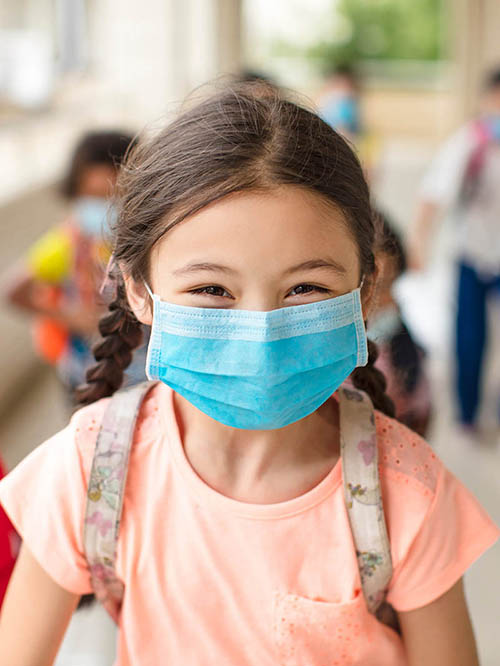
Why eligible children and teens should get the COVID-19 vaccine
Getting a COVID-19 vaccination can help protect your child from getting COVID-19 and spreading it to others. It can also keep your child from becoming seriously ill or needing hospitalization if they do contract COVID-19.
The American Academy of Pediatrics (AAP) reported data that since the beginning of the pandemic, about 15.1 million children have been infected with COVID-19 — which is about 18% of all U.S. cases. Among states reporting, children ranged from 1.3 to 4.6% of their total cumulated hospitalizations. The Centers for Disease Control and Prevention (CDC) puts the pediatric death toll at 1,587 children under 18 years in the United States, representing 0.1 percent of total COVID deaths and 0.009 percent of pediatric COVID-19 cases.
Most children who are infected with the COVID-19 virus only experience mild symptoms such as low-grade fever, fatigue, and cough. However, some children have experienced severe illness and required hospitalization, or have experienced “long-haul” or recurring symptoms of COVID-19 in the weeks or even months after becoming infected—even if their initial illness was mild.
Children with underlying health conditions may be at an increased risk for developing complications and severe illness.
The restrictions on children’s activities, in-person learning and other socialization opportunities during the COVID-19 pandemic caused a mental health crisis in this age group. The COVID-19 vaccine may give families the peace of mind to safely return to activities more fully, which will benefit their kids’ mental health tremendously.

COVID-19 Vaccine and Fertility
There is no evidence that the COVID-19 vaccines can impair fertility; there is not a biological plausibility for this.
Why does this theory persist?
First, let’s have a refresher lesson on how mRNA vaccines – the type of vaccine produced by both Pfizer and Moderna – work. When the vaccine is injected into a body, mRNA – a strip of genetic material – enters the body’s cell and prompts the cell to build copies of spike proteins. These spike proteins are the bumps that protrude from the surface of coronavirus particles. The body’s immune system then learns to spot these spike proteins and produces antibodies and other immune responses that block the virus from entering healthy cells in the future.
There have been claims that a protein called Syncytin-1, which is present in the early development of the placenta, have a similar chemical sequence as the COVID-19 spike protein. The claim is then that a body that has received the vaccine might later confuse the Syncytin-1 protein for a COVID spike protein and block it, ostensibly causing an inability for a body to get pregnant.
But there is no reason to suspect this will happen, and here’s why:
While the two protein sequences do share very small amounts of similarity, they are very, very short sequences. The likelihood of these protein sequences being confused for each other is non-existent.
Do we have proof that people who got the COVID-19 vaccine were able to have children?
Yes. We know that natural COVID-19 infection hasn’t caused infertility. If someone were to have had COVID-19, they’d naturally have antibodies to these spike proteins, and yet women who have had COVID-19 are still getting pregnant. We also know that from earlier trials, an equal number of women who were given the vaccine and who received the placebo shot became pregnant.
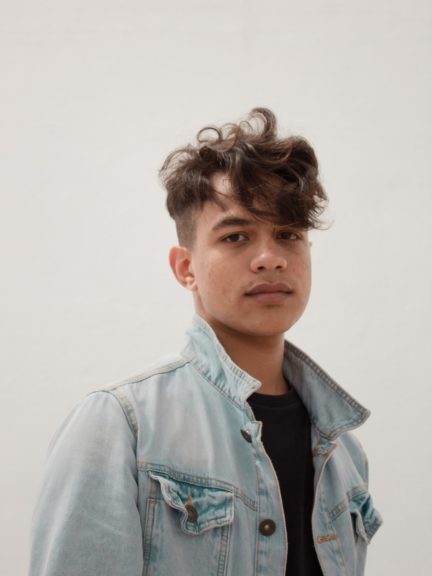
COVID-19 Vaccine and Myocarditis
Reports of people experiencing inflamed heart muscle, or myocarditis, after receiving an mRNA COVID-19 vaccine are understandably worrisome to parents. Myocarditis been proven to be an extremely rare side effect, and health officials have determined that the benefits of kids receiving a COVID-19 vaccine far outweigh the risks.
Does the COVID-19 vaccine cause myocarditis?
Health officials have observed an increased risk for myocarditis among people who have received an mRNA COVID-19 vaccine, particularly males ages 12 to 29 years.
The number of cases, however, is small: As of June 11, the Vaccine Adverse Event Reporting System – or VAERS, the federal vaccine safety monitoring system – received 1,226 reports of myocarditis after mRNA COVID-19 vaccination, and not all those reports were verified cases. As of the same time period, approximately 296 million doses of the vaccine had been administered in the United States, 52 million of which were to people ages 12 to 29 years.
Of those doses, 30 million were first doses and 22 million were second doses. Incidences of myocarditis have occurred more after the second dose than the first, and typically appeared within a week of vaccination.
What is myocarditis and pericarditis?
Myocarditis is the inflammation of the heart muscle, and pericarditis is the inflammation of the pericardium, or tissue that creates a sac-like structure that encloses the heart to keep it in place. There are many causes of this inflammation, including infection, autoimmune diseases, medicines and environmental factors.
Should my child still get the vaccine even if there is an increased risk of myocarditis?
Yes. The U.S. Centers for Disease Control and Prevention’s Advisory Committee on Immunization Practices (ACIP) concluded in June 2021 that the benefits of vaccinating all recommended age groups with the COVID-19 vaccination clearly outweigh the risks of vaccination, including the risk of myocarditis after vaccination.
Additionally, according to the American Academy of Pediatrics, myocarditis and pericarditis are much more common in people who contract COVID-19, and the risks to the heart from COVID-19 infection can be more severe.
Health officials will continue to monitor outcomes of myocarditis cases after vaccination and will educate healthcare providers and the public about myocarditis cases and the use of COVID-19 vaccines.
What if my child develops myocarditis after receiving the COVID-19 vaccine?
While having a sick child can be scary or stressful in any case, the good news is that myocarditis is highly treatable.
In many cases, myocarditis resolves on its own. In some cases, medication may be needed, and in very severe cases, intravenous medication or other interventions may be required.
What are the symptoms of myocarditis? What should I do if my child has symptoms?
Symptoms of myocarditis or pericarditis include acute chest pain, shortness of breath or heart palpitations
Parents should contact their pediatrician if their child experiences these symptoms.
If a pediatrician suspects the child has myocarditis or pericarditis after conducting a physical exam and comprehensive history, they will likely consult with a cardiologist, infectious disease specialist and rheumatologist. Evaluations may also include an electrocardiogram and blood tests.
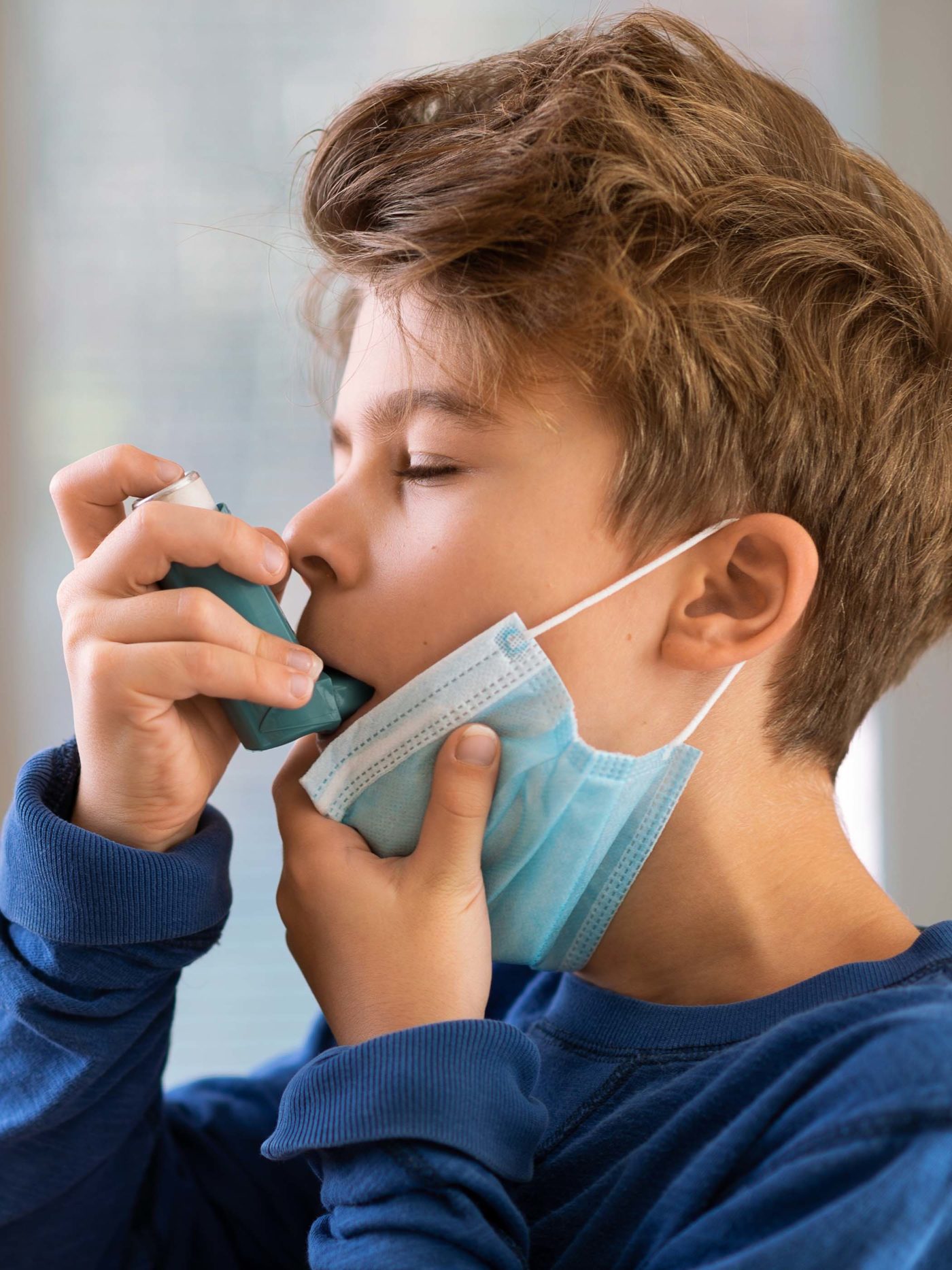
COVID-19 Vaccine and Pediatric Asthma
Dr. Olga Guijon, a pediatrician at CHOC’s Breathmobile asthma outreach program, answers parents’ common questions about the COVID-19 vaccine for children with moderate to severe asthma.
Can my child with asthma receive the COVID-19 vaccine?
Yes. Pfizer-BioNTech’s COVID-19 vaccine has received emergency use authorization for kids ages 5 years and older. Kids with underlying medical conditions such as asthma should receive the COVID-19 vaccine, flu vaccine and all other routine vaccinations as long as they have not had an immediate or severe allergic reaction to any of the vaccine’s ingredients.
Why should my kids with asthma receive the COVID-19 vaccine?
Since children with underlying health conditions such as moderate to severe asthma have a greater risk of becoming seriously ill and requiring hospitalization if contracting COVID-19, they should receive the COVID-19 vaccine as soon as possible. The vaccine will also protect them and those around them from community spread.
The restrictions on children’s activities, in-person learning and other socialization opportunities during the COVID-19 pandemic caused a mental health crisis in this age group. The COVID-19 vaccine may give families the peace of mind to safely return to activities more fully, which will benefit their kids’ mental health tremendously.
How does COVID-19 affect kids with asthma?
The U.S. Centers for Disease Control and Prevention (CDC) states that patients with moderate to severe asthma could be at greater risk for more serious disease. A recent study indicates children with asthma can have up to four times the risk of hospitalization following a COVID-19 diagnosis.
Will the COVID-19 vaccine worsen my child’s asthma symptoms?
No. Adults with mild to severe asthma were included in clinical trials for the Moderna, Pfizer-BioNTech, and Johnson & Johnson Janssen vaccines, and they showed no difference in side effects to adults without asthma. There is no evidence to suggest that kids with asthma would respond to the COVID-19 vaccine differently than adults with asthma.
For children and teens, the only COVID-19 vaccine approved with emergency use authorization is from Pfizer-BioNTech. The common side effects include pain and swelling on the arm where the shot was given, fever, chills, fatigue and headache. The side effects are more prominent following the second dose and should ease within 24 hours.
Should my kids continue taking their asthma controller medications before and after receiving the vaccine?
Yes. It’s important that your kids continue to take their regular asthma controller medications and follow their asthma action plan before and after receiving the COVID-19 vaccine. There is no evidence to show that the COVID-19 vaccine will react to your child’s routine medications.
Should my children with asthma receive a COVID-19 vaccine booster?
The CDC recommends vaccine booster shots for people 18 years and older who have moderate to severe asthma.
There is still research being collected on how long COVID-19 protection lasts in children with the vaccination. Watch for guidance from the CDC regarding booster guidance for children and teens under the age of 18 years.
Schedule a COVID-19 vaccine appointment for your child
To find CHOC’s community clinic on MyTurn, enter zip code 92868
In the News
CHOC pediatric experts discuss what parents need to know about the COVID-19 vaccine.
COVID-19 Articles
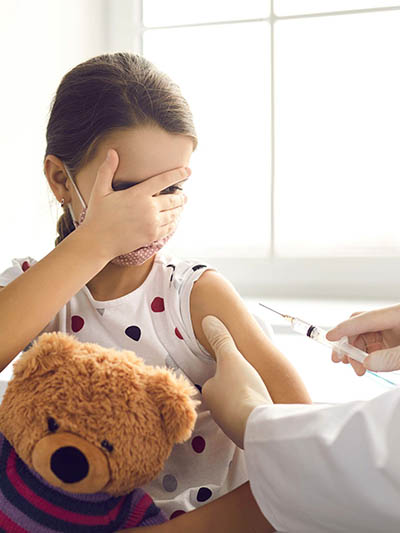
FEATURED
Kids and the fear of needles: What parents should know
Research suggests that about 40% of children worldwide under age 12, and 20% of adolescents have a fear-driven physical or emotional response to needles — causing some to try to avoid necessary vaccines or medical treatment entirely.
Here, Dr. Amy Morse, a pediatric psychologist at CHOC, wants to help parents understand these fears and apply developmentally appropriate strategies to help their children cope with their fear and prioritize their health.
The guidance on this page has been clinically reviewed by CHOC pediatric experts.
For more health and wellness resources from the pediatric experts at CHOC:
Sign up for the Kids Health newsletter.
The contents of this webpage, including text, graphics, audio files, and videos (“Materials”), are for your general information only. The Materials are not intended to substitute qualified professional or medical advice, diagnoses, or treatments. CHOC does not recommend or endorse any specific tests, physicians, products, procedures, or other information that may be mentioned on or linked to this webpage. Always call your physician or another qualified health provider if you have any questions or problems. If you think you may have a medical emergency, call your doctor, go to the nearest emergency department, or call 911.
For more health information for your family visit health.choc.org


